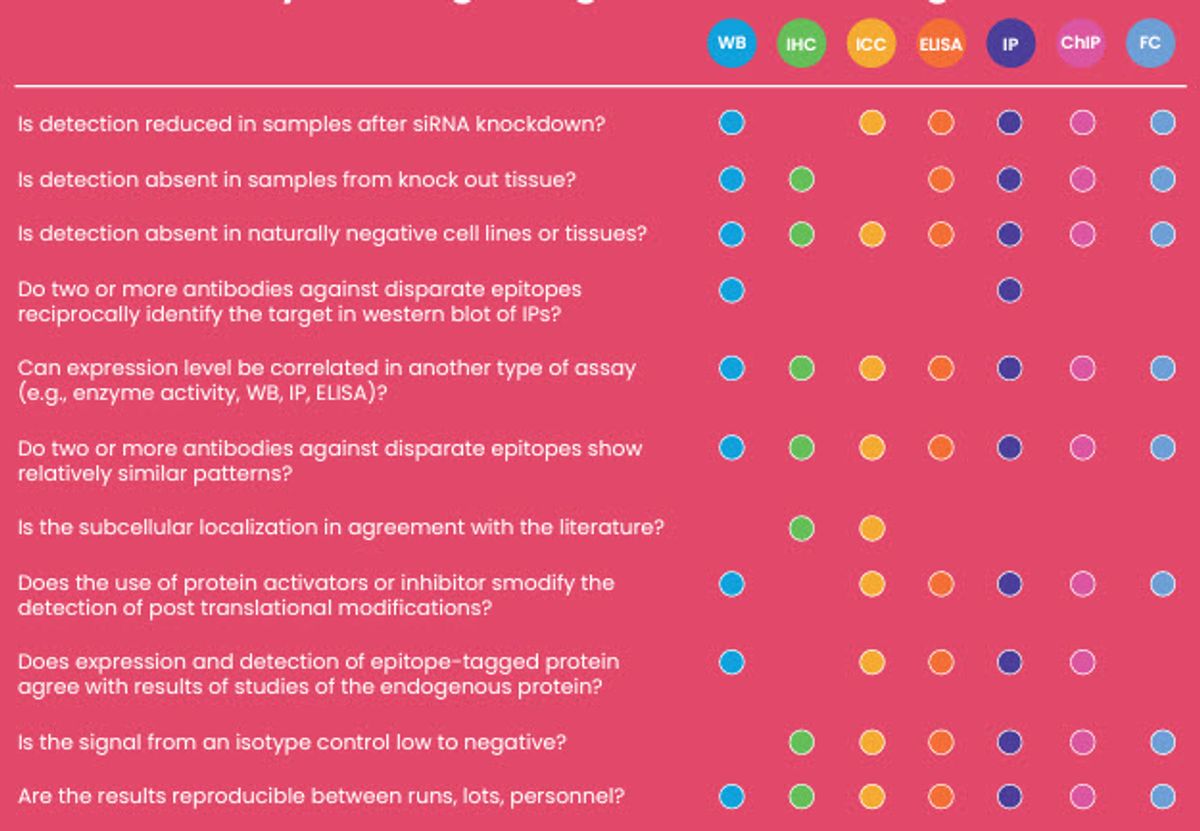Antibodies, also known as immunoglobins, are produced by immune B cells in response to foreign molecules called antigens to neutralize them. They are used for numerous applications in biology and diagnostics. Attributed to their molecular recognition properties, antibodies are a popular tool in biological experiments. They are widely used in experiments to identify, isolate, and quantify specific protein antigens to understand their roles in physiology and diseases. Some examples include western blot analysis, immunostaining, and flow cytometry.
Reduced antibody specificity, due to batch-to-batch variability, or antibodies that bind the wrong targets lead to poor experimental reproducibility and can result in data misinterpretation and wasted resources. It is, therefore, important to check that the antibody is specific to its target antigen.
In this infographic, you’ll learn about:
- The pitfalls of not validating your antibodies
- Antibody validation questions for the vendor and researcher
- Recommended methods and controls
- And more!
Download this infographic now to learn about the importance of validating your antibodies.






